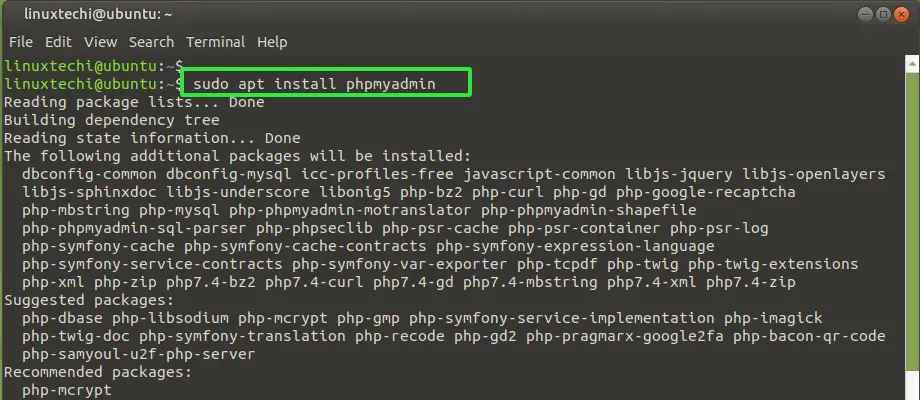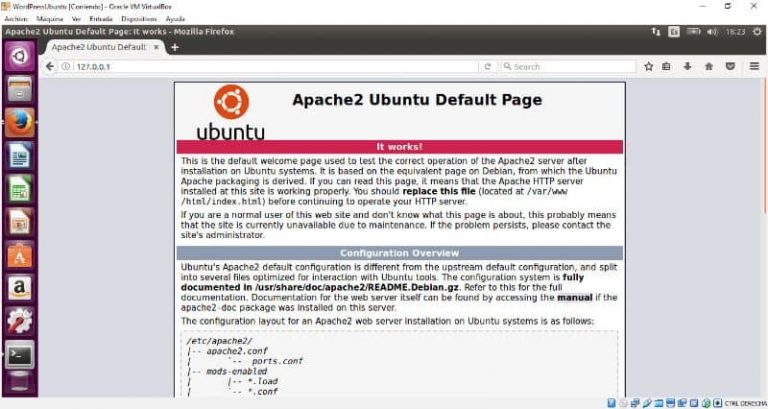

Then edit the "/etc/mysql/my.cnf" file like this : So that web server must be restarted.īash apt-get install mysql-server mysql-client mysql-common Note : PHP is a module that is linked to the Apache web server. Then restart the apache configuration to reflect the changes. In this case, simply add them to the list.ĭisable_functions = symlink,shell_exec,exec,proc_close,proc_open,popen,system,dl,passthru,escapeshellarg,escapeshellcmd You will also notice a list of functions "pcntl_" is already entered in the latest version of PHP5. # Sets a list of dangerous turn on your server functions. Moreover, this feature set deprecated since version "5.3.0" PHP and disappear from the version "5.4.0".

#UBUNTU INSTALL PHPMYADMIN APACHE2 CODE#
# It is recommended to disable and protect their PHP code correctly. # magic_quotes_gpc can "protect" the "GET" data "POST". # short_open_tag allows you to use short tags instead of # Activate it when developing a website but disable it at the start of production thereof to prevent hackers from falling on "sensitive" informations. # The "display_errors" directive to display the errors generated by PHP. # Because hackers will not know the php version used on the server, you will be more protected against attacks. # Cache PHP (PHP mask information about the header of the web server). PHP # Super global variable (disable for security reasons) Then edit the following informations in the "/etc/php5/apache2/php.ini" file like this : Note: PHP will be automatically linked to your Apache web server.īash apt-get install libapache2-mod-php5 php5 php5-common php5-curl php5-dev php5-gd php5-idn php-pear php5-imagick php5-imap php5-json php5-mcrypt php5-memcache php5-mhash php5-ming php5-mysql php5-ps php5-pspell php5-recode php5-snmp php5-sqlite php5-tidy php5-xmlrpc php5-xsl Then, install the "PHP" module in order to create dynamic websites. ServerName Then restart the apache configuration to reflect the changes : You can then give a name to your Apache server by adding the line below. To do this, add the following lines at the bottom of "/etc/apache2/nf" file :Īpache # Prevents display information from the server Once the server is installed, we will prevent the display of information about the server, displayed (for example) in a 404 error :Īpache/x.x.xx (Ubuntu) Server at 192.168.1.xx Port 80 phpMyAdmin : The database tool management known worldwide, written in PHP. MySQL : The server database (which is the most used in the world of web).

#UBUNTU INSTALL PHPMYADMIN APACHE2 FULL#
In this tutorial, we will install a full server web development including :


 0 kommentar(er)
0 kommentar(er)
